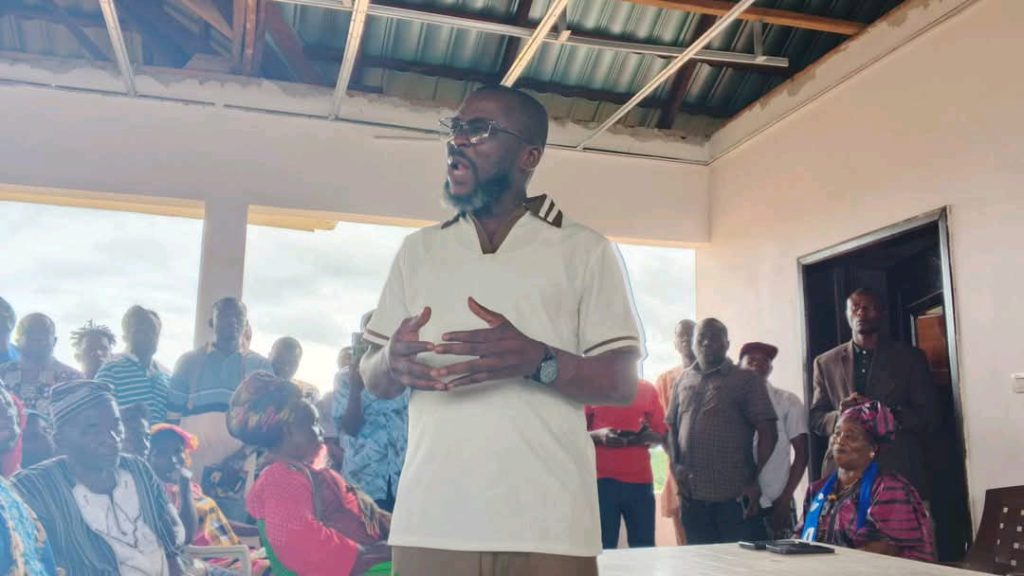The political landscape of Bong County, Liberia, has become increasingly complex with the Congress for Democratic Change (CDC) officially designating Representative Eugine JM Kollie as the party’s “Godfather” in the county. This move has created a dual power structure, with Kollie now positioned as a rival to Senator Prince Kermue Moye Sr., who has long held the undisputed title of Bong County’s political godfather. The CDC’s decision, while celebrated by party loyalists, has sparked concerns about further division in a county already grappling with the aftermath of tense elections and lingering factionalism.
The CDC’s rationale for elevating Kollie to this influential position rests on his unwavering loyalty and strategic importance. As the sole CDC representative to withstand the political currents in Bong County, Kollie is seen as a symbol of the party’s resilience. Party insiders emphasize his steadfastness, portraying him as the last man standing amidst political shifts and emphasizing the necessity of rewarding such dedication. This narrative casts Kollie as a beacon of hope and continuity for the CDC in a challenging political environment.
However, critics view the appointment with apprehension, arguing that it could exacerbate existing political divisions. They contend that introducing another “godfather” figure will only escalate rivalries and undermine ongoing reconciliation efforts. The concern is that the focus will shift from healing and unity to a power struggle between these two influential figures, potentially hindering the county’s progress and prolonging its cycle of political instability. Civil society leaders warn that this move could deepen existing wounds rather than fostering the much-needed healing process.
Senator Moye, whose established influence stems from both political clout and community development initiatives, has not yet publicly addressed the CDC’s declaration. However, his supporters perceive this move as a direct challenge to his authority, a deliberate attempt to diminish his influence within the county. This perceived power play adds another layer of complexity to the already delicate political balance in Bong County. It sets the stage for a potential showdown between two prominent figures, each commanding significant support bases.
The ramifications of this dual “godfather” dynamic for the citizens of Bong County are multifaceted. Some view the increased competition as a potential catalyst for positive change, believing it will enhance accountability and drive progress. The hope is that this rivalry will translate into more responsiveness from political leaders, as they strive to demonstrate their effectiveness and win the support of the populace. However, others fear that this parallel power structure will further impede development and exacerbate existing divisions. They worry that the focus will shift from the needs of the people to the political maneuvering of these two power centers.
The future political trajectory of Bong County hinges on how this dual leadership dynamic unfolds. Will it foster a more pluralistic and empowered citizenry, or will it devolve into a contest of egos that sidelines reconciliation efforts? The political climate in the county is now charged with anticipation, as residents watch closely to see whether this new configuration will bring about progress and unity or further entrench divisions. The stakes are high, and the future of Bong County hangs in the balance as these two “godfathers” navigate their respective roles and influence. The upcoming elections will undoubtedly be a key testing ground for this new political landscape, revealing whether the presence of two influential figures will ultimately benefit or hinder the county’s development.


